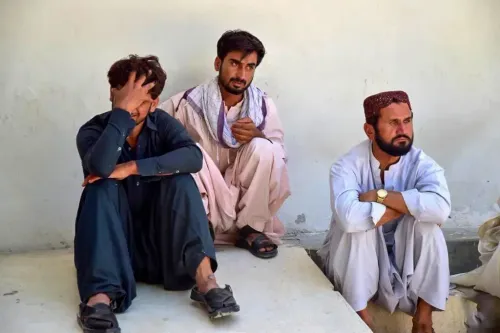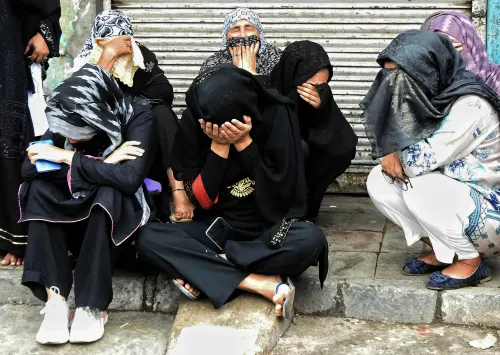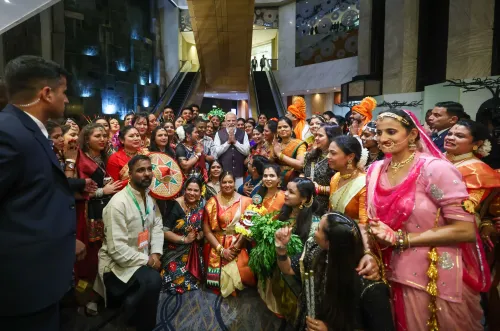Why Does South Korea Hold Its Own Memorial Ceremony for Sado Mine Forced Labor Victims?

Synopsis
Key Takeaways
- South Korea held a separate memorial to honor Korean forced labor victims.
- Unresolved tensions persist between South Korea and Japan regarding historical acknowledgment.
- Ambassador Lee Hyuk emphasized remembrance and empathy.
- Over 1,500 Koreans were forced to work at the Sado mines during WWII.
- Japan plans to hold annual memorials after UNESCO recognition.
Sado Island, Nov 21 (NationPress) South Korea commemorated the victims of forced labor from Korea at a gold and silver mining complex during World War II with a memorial ceremony in Japan on Friday. This marks the second consecutive year that South Korea has organized its own event separate from the official ceremony held by Japan.
Seoul opted to abstain from attending this year's memorial hosted by Japan due to unresolved differences regarding the acknowledgment of Korean workers' suffering and the issue of forced labor.
The memorial, organized by the South Korean Embassy in Tokyo, was held at a hotel on Sado Island in Niigata Prefecture, attended by 11 family members of the labor victims.
South Korean Ambassador to Japan Lee Hyuk honored the memory of the workers, expressing condolences to their families. He stated, "Over 80 years ago, numerous Korean workers were forcibly brought to Sado Island through recruitment or conscription facilitated by the Japanese governor-general of Korea, enduring grueling conditions."
He added, "Contemplating the past pain and engaging in this act of remembrance will enhance our empathy and facilitate healing."
Japan has committed to conducting the memorial event annually following the Sado mines' designation as a UNESCO World Heritage site in July 2024.
South Korea had previously boycotted Japan's event last year, referencing Japan's perceived insincerity in honoring the victims and its refusal to adequately acknowledge their suffering in the memorial speech, as reported by Yonhap news agency.
Historically, the Sado mines, renowned from the 17th to 19th centuries, were primarily used to supply war materials for the Japanese imperial army during World War II. It is estimated that over 1,500 Koreans were subjected to forced labor at the mines from 1940-1945, during Korea's colonial subjugation by Japan.
Japan also conducted its own memorial ceremony for Sado in September.









